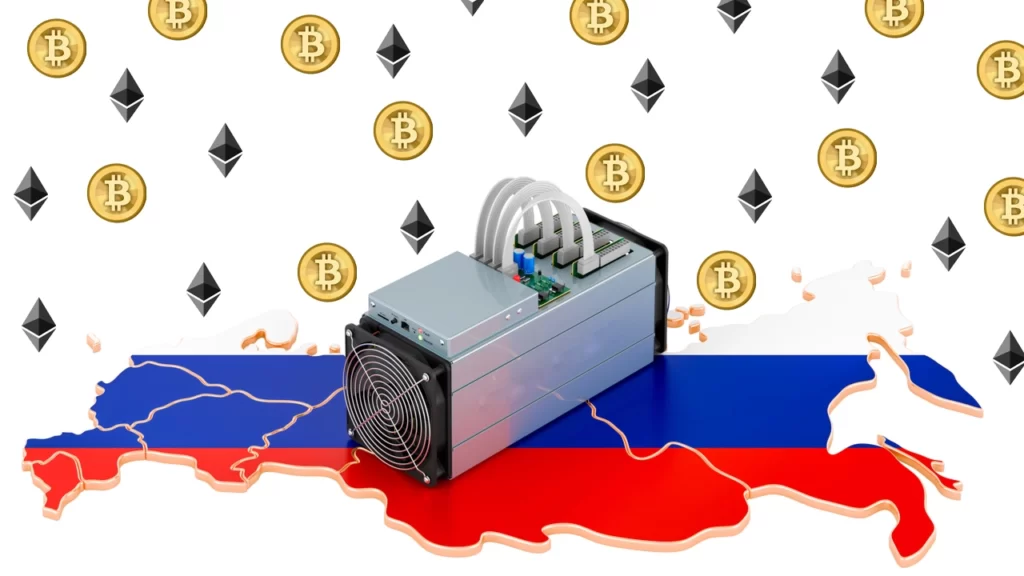The State Duma, the lower chamber of the Russian parliament, voted against a bill that would have regulated crypto mining. Although MPs rejected that measure, which also sought to allow crypto payments in the nation, another draft law on mining that permits international exchanges of digital assets is anticipated in the legislature soon.

The Russian Federal Assembly’s State Duma voted this week to reject a proposed law regulating crypto mining. Members of the liberal New People faction earlier introduced the measure titled “On Mining in the Russian Federation.”
Legislators attacked the sponsors for failing to adequately establish the activity’s regulatory principles, standards for data centers and mining operators, and a method for taxing mining firms.
The legislation was also characterized as disjointed and confusing by representatives of the parliamentary committees who evaluated it, according to a report from the Russian crypto news outlet Bits.media. They emphasized that it makes no provision for the registration of miners and their tools, or for the identification of individuals who operate as independent contractors in the mining industry.
The Financial Market Committee’s recommendation was followed by the bill’s rejection. Its members pointed out that despite the Russian Federation’s constitution designating the Russian ruble as the only legal money and outlawing so-called “monetary surrogates,” it permits the use of cryptocurrencies for payments within the country.
This week has also seen the submission of another legislative proposal to control the extraction of digital currency. This new draft will shortly be submitted, according to Anton Gorelkin, deputy chairman of the Duma Committee on Information Policy. It will include measures allowing international crypto payments and promoting the growth of domestic crypto infrastructure.
According to Gorelkin, who was quoted by RBC Crypto, this will be a more complex document that takes into consideration the views of the Central Bank and the Ministry of Finance and doesn’t jeopardize the ruble’s status as the sole currency in Russia. The legislator is a member of the United Russia party, which is currently in power.
Over the past year, government entities in Moscow have engaged in extensive talks on the future of cryptocurrencies and related businesses like mining. The majority of officials argue that they shouldn’t be used for payments in Russia, but pressure from the sanctions has led to support for legalizing international crypto settlements.
After the passage of the law “On Digital Financial Assets,” a draft law “On Digital Currency” is anticipated to close any remaining holes in the legal system. The latter, which took effect in January of last year, largely applies to electronic coins and tokens with an issuer.
Bitcoin mining has become a lucrative industry in Russia over the past few years, particularly in the country’s energy-rich regions. Recent research claims that the industry’s earnings have surged 18 times since 2017, but Russian miners have been severely hampered by Western sanctions related to the invasion of Ukraine.
